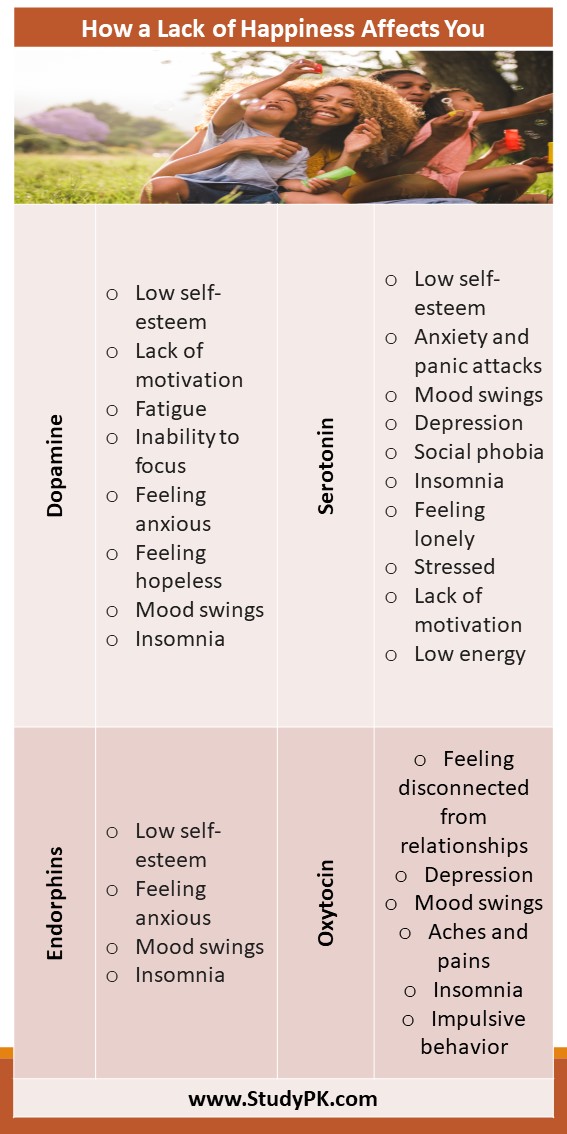The 4 Brain Chemicals That Affect Happiness: Symptoms of Low Levels and How to Boost Them
How a Lack of Happiness Affects You
- Procrastination: When you’re not happy, you may be more likely to put off tasks and avoid challenges.
- Low self-esteem: You may start to doubt your abilities and feel like you’re not good enough.
- Lack of motivation: It can be hard to get up and go when you’re not feeling happy.
- Fatigue: You may feel tired all the time, even if you’re getting enough sleep.
- Inability to focus: It can be difficult to concentrate on anything when you’re feeling down.
- Anxiety: You may feel anxious or worried about everything, even small things.
- Hopelessness: You may start to feel like there’s no point in trying anything.
- Mood swings: Your emotions may be all over the place, from feeling angry to feeling sad.
- Insomnia: You may have trouble sleeping, which can make it even harder to feel happy.
These are just some of the ways that a lack of happiness can affect you. If you’re struggling with any of these symptoms, it’s important to talk to someone you trust. There are things you can do to improve your happiness and well-being.
The 4 Brain Chemicals That Affect Happiness
The brain produces four main chemicals that affect happiness: dopamine, endorphins, serotonin, and oxytocin.
- Dopamine: Dopamine is associated with pleasure and motivation. When we experience something pleasurable, dopamine is released, which makes us want to do it again.
- Endorphins: Endorphins are known as “feel-good” chemicals. They’re released during exercise, laughter, and other pleasurable activities.
- Serotonin: Serotonin is associated with mood regulation, sleep, and appetite. When levels of serotonin are low, we may experience symptoms such as depression, anxiety, and insomnia.
- Oxytocin: Oxytocin is known as the “love hormone.” It’s released during bonding experiences, such as hugging, sex, and childbirth. Oxytocin helps to reduce stress and promote feelings of love and trust.

Leave a Reply